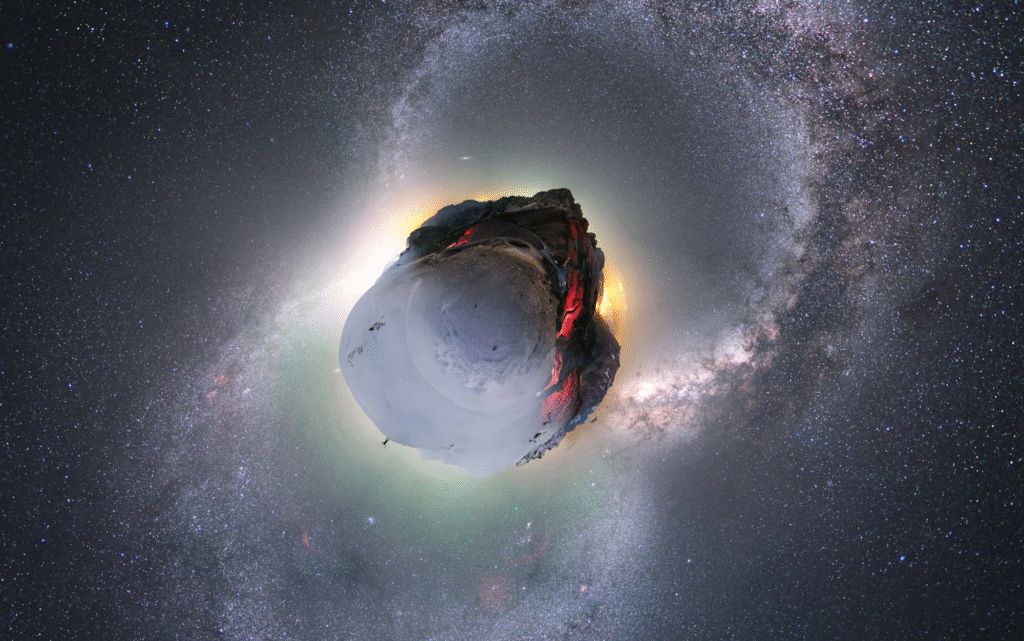The Universe’s End and New Timeline Emerges?
Recent scientific discoveries suggest the universe may vanish much sooner than previously thought. Researchers from Radboud University in the Netherlands have calculated that all stars will fade in about one quinvigintillion years a one followed by 78 zeros.

This is far quicker than earlier estimates of 10 to the power of 1,100 years. The findings, published in the Journal of Cosmology and Astroparticle Physics, are stirring debate about the cosmos’ fate.
Background A Universe in Decay
The universe began with the Big Bang roughly 13.8 billion years ago. Since then, it has been expanding, driven by a mysterious force called dark energy. Stars form, burn, and die, leaving behind remnants like white dwarfs and neutron stars. Scientists once believed these remnants would linger almost indefinitely. However, new research points to a process called Hawking radiation, which could cause even these objects to decay. This radiation, proposed by physicist Stephen Hawking, suggests that particles slowly leak from massive objects, shrinking them over time. The Radboud team applied this idea not just to black holes but also to stars’ final forms, speeding up the universe’s end.
What Science Says?
The new study claims the universe’s decay is accelerated by Hawking-like radiation affecting white dwarfs and neutron stars. Lead researcher Heino Falcke, a professor of radio astronomy, explains that earlier models ignored this radiation, overestimating the universe’s lifespan. The team’s calculations show that in 10^78 years, the last stellar remnants will dissolve, leaving a dark, empty void. Other processes, like black hole evaporation, could hasten this timeline. However, Falcke notes, “The end is still a very long time away.” The research also aims to deepen our understanding of Hawking radiation, a key puzzle in modern physics.
Scientists’ Predictions
Several scientists have weighed in on the universe’s fate. The Radboud team, including co-author Walter van Suijlekom, suggests their work could unravel mysteries about the cosmos’ fundamental laws. Other researchers, like those studying dark energy, propose alternative endings. For instance, recent data from the Dark Energy Spectroscopic Instrument (DESI) hints that dark energy might weaken, potentially causing the universe to collapse rather than fade. Adam Riess, a Nobel Prize-winning astrophysicist, calls these findings “the biggest hint” about dark energy in decades. While no single prediction is certain, the consensus is that the universe’s end, whether by decay or collapse, is inevitable.
Why It Matters?
These discoveries don’t affect our daily lives—the timeline is unimaginably vast. Yet, they reshape how we view our place in the cosmos. Kate Shaw, a physicist from Sussex University, calls such research “transformative” for understanding humanity’s role. Projects like the DUNE experiment in the U.S. and Japan’s Super K neutrino detector are racing to answer why the universe exists at all. By studying its end, scientists hope to unlock secrets about its beginning. For now, the universe’s disappearance remains a distant event, but each finding brings us closer to grasping its story.


 China Unveils World’s Lightest Brain Chip to Control Bees
China Unveils World’s Lightest Brain Chip to Control Bees  New Sea Monster Species Found in Canada
New Sea Monster Species Found in Canada  Is a Space Hotel Really Opening in 2027?
Is a Space Hotel Really Opening in 2027?